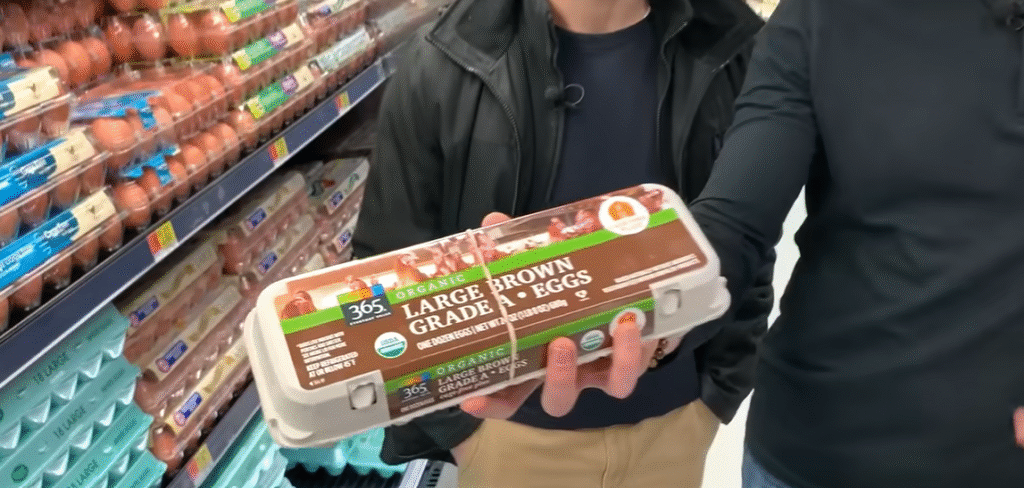Because it emphasizes how brittle consumer trust can be when marketing claims are revealed to be false, the lawsuit against Alderfer Family Farm has touched a nerve. The company was accused by the plaintiffs of selling non-organic eggs under the guise of “free roaming,” but the evidence indicated that the hens were kept in small areas that resembled caged systems. Alderfer agreed to a $287,500 settlement to settle the claims, despite not acknowledging any wrongdoing. This decision feels remarkably effective in reaffirming the principle that truth in labeling cannot be optional.
Customers can claim between $2 and $3 per carton for Alderfer’s eggs if they bought them between late 2020 and the settlement approval date. Proof of purchase allows for an unlimited number of claims. The payout might seem small to many, but the precedent is very clear: companies that exaggerate their practices will be scrutinized. Restoring trust in the language that influences consumer decisions is the goal of the settlement, which goes beyond breakfast.
Case Profile – Non Organic Eggs Class Action Lawsuit
| Category | Details |
|---|---|
| Defendant | Alderfer Family Farm LLC / Alderfer Poultry Farm |
| Case Name | Spindel v. Alderfer Family Farm LLC, et al. |
| Court | U.S. District Court, Southern District of New York |
| Settlement Amount | $287,500 |
| Filing Period | Purchases made between Dec. 1, 2020 – final approval date |
| Key Allegation | Non-organic eggs falsely marketed as from “free roaming” hens |
| Compensation | $2 per carton (no proof, up to 2 cartons); $2–$3 per carton (with proof, unlimited) |
| Claim Deadline | September 22, 2025 |
| Final Hearing | October 22, 2025 |
| Reference Link | https://alderfersettlement.com |

A larger cultural narrative is frequently revealed by food litigation, and this case is especially novel in the way it relates to other cases of a similar nature in the industry. Well-known brands like Kroger, Eggland’s Best, and Nellie’s Free Range Eggs have been accused of lying about animal welfare standards in recent years. “Farm fresh,” “pasture raised,” and “cage free” are marketing terms that have turned into battlefields. In addition to nutrition, consumers are drawn to these statements because they promote sustainability, ethical living, and individual well-being. The disappointment is not only monetary when reality does not match the image; it is also intensely personal.
The Alderfer settlement brings to mind instances where aspirational branding and reality collided in other industries. Egg producers are now being put to the test in court, much like fashion brands accused of “greenwashing” or celebrity-led wellness brands criticized for making inflated health claims. Alderfer’s marketing language has been questioned, much like Gwyneth Paltrow’s Goop empire faced legal challenges. This demonstrates how effective consumer movements can be in enforcing accountability.
The emotional symbolism of eggs themselves is what gives the argument resonance. Eggs are a common food in many homes and stand for simplicity, tradition, and sustenance. However, the effect is remarkably similar to learning that a beloved celebrity has been fostering a false public persona when cartons labeled “free roaming” conceal industrial practices. Therefore, integrity is at the heart of this lawsuit, not just eggs.
Legally speaking, the terms of the settlement highlight how courts strike a balance between individual complaints and group remedies. The court extends justice while acknowledging the practical limitations of documentation by permitting customers to claim two cartons without receipts. A detail that feels particularly durable in demonstrating fairness is that those who carefully saved their receipts stand to gain more. The result is consistent with a larger trend in the legal system where class actions are a surprisingly inexpensive means of safeguarding consumers, guaranteeing that even minor damages can be compensated for when multiplied over thousands of transactions.
The ramifications for society go far beyond Pennsylvania. Legislators have been debating whether federal labeling standards should be standardized in order to avoid ambiguity in recent days. Clearer definitions of “cage free” or “free roaming,” according to proponents, would greatly minimize misunderstandings and shield families from paying premiums under false pretenses. Alderfer’s case might be remembered as a driving force behind regulatory change if such reforms are implemented.
The lawsuit has a cultural connection to the increasing call for transparency across the board. Consumers are increasingly associating spending with values, from ethically sourced coffee to organic skincare. Businesses that practice authenticity will especially benefit from this change, but others will come under close scrutiny. Alderfer’s error thus adds to a growing body of examples showing how integrity has emerged as a brand’s most valuable quality.
The parallel with celebrities is also instructive. Similar to how chefs like Jamie Oliver and Alice Waters use public platforms to call for ethical sourcing and hold companies accountable, consumer lawsuits give those voices more weight in a different setting. Litigation forces businesses to defend their positions under oath rather than in glitzy advertising campaigns, making it the courtroom equivalent of a celebrity endorsement for transparency.
The case serves as a reminder that regular consumers have enormous influence as the final hearing draws near. One person’s annoyance with incorrectly labeled eggs may be disregarded on an individual basis. When those annoyances are combined, they form a class action lawsuit that forces large corporations to change their approach. It serves as a lesson in the resilience of consumer rights, the power of community, and surprisingly accessible justice.

